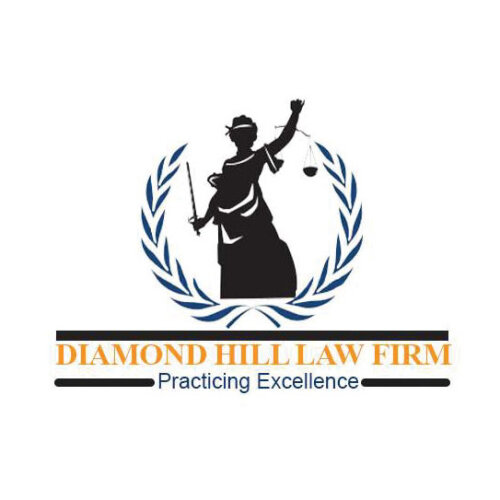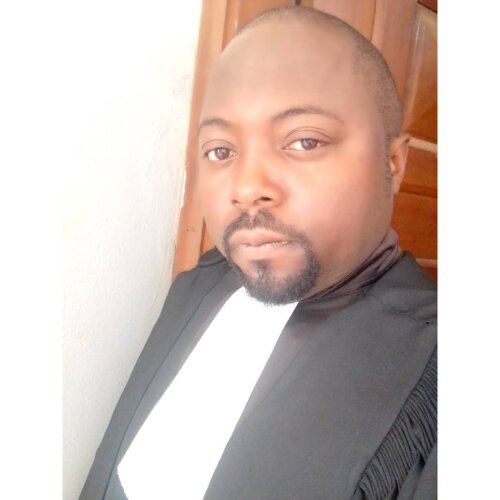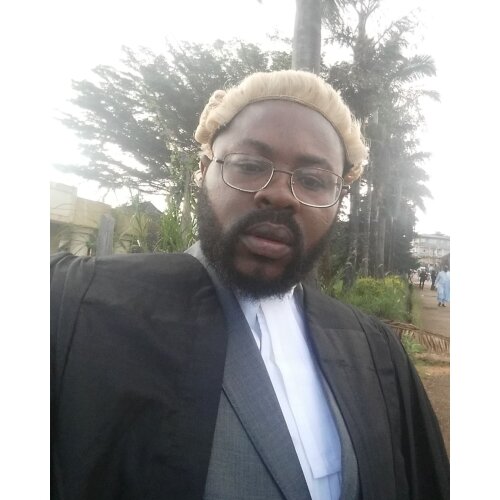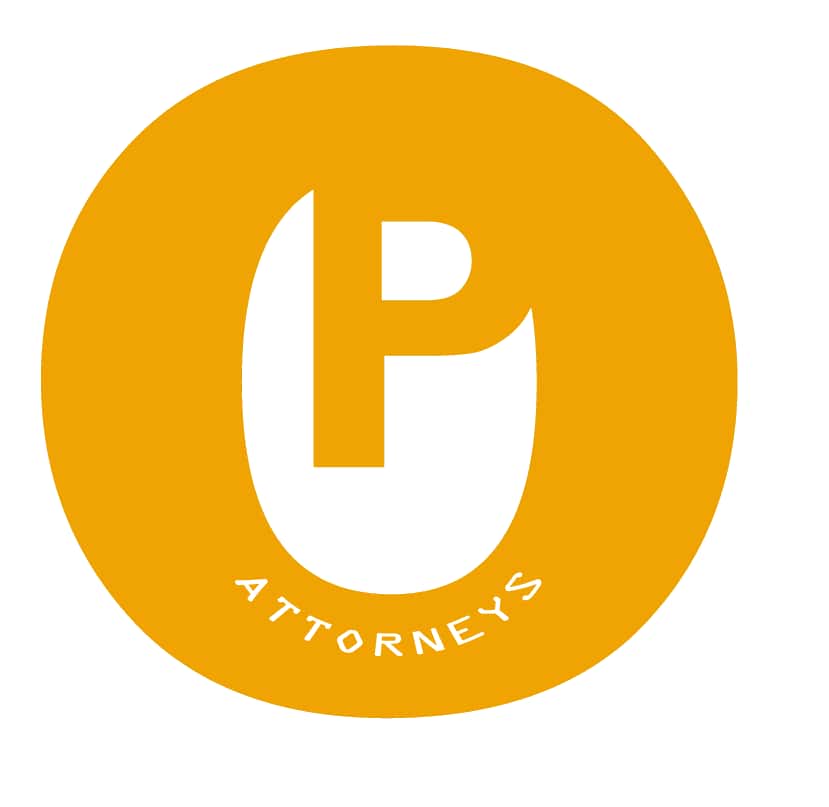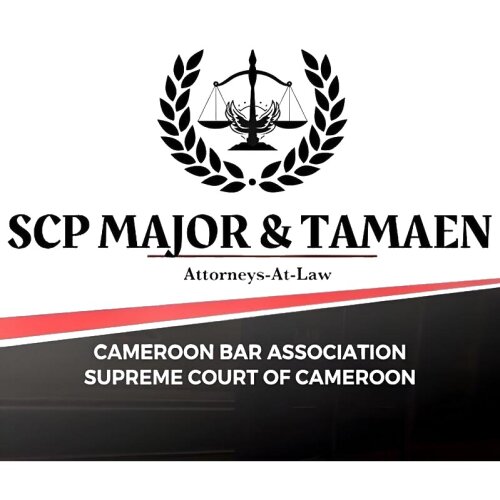Best Energy Regulatory Law Lawyers in Cameroon
Share your needs with us, get contacted by law firms.
Free. Takes 2 min.
Or refine your search by selecting a city:
List of the best lawyers in Cameroon
Legal guides written by CHI & Partners Law Firm:
- Ship Registration in Cameroon
About Energy Regulatory Law in Cameroon
Energy Regulatory Law in Cameroon refers to the legal framework governing the generation, transmission, distribution, and consumption of energy, including electricity, oil, and gas. This body of law establishes the rules for licensing, market operations, tariffs, environmental considerations, and consumer protection within the energy sector. It is influenced by both national legislation and international best practices, ensuring that energy resources are managed and utilized in a way that supports economic development, protects the environment, and secures reliable access to energy for all citizens.
Why You May Need a Lawyer
Navigating the complexities of Energy Regulatory Law in Cameroon often requires specialized legal knowledge. You may require a lawyer if you are:
- An investor or company seeking to obtain licenses for energy projects
- A business facing compliance or regulatory actions by authorities
- A stakeholder involved in tariff disputes or contract negotiations
- A community or individual impacted by energy infrastructure projects
- An entrepreneur interested in renewable energy development
- An organization participating in public procurement related to the energy sector
- Dealing with expropriation, compensation, or land rights issues due to energy projects
- Challenging energy market practices or consumer protection issues
In these situations, a competent lawyer can help interpret regulations, represent your interests, and facilitate compliance with local laws.
Local Laws Overview
Several key pieces of legislation and regulatory bodies form the backbone of Energy Regulatory Law in Cameroon:
- Law No. 2011/022 of 14 December 2011: Provides the general framework for the electricity sector, outlining roles and responsibilities.
- Agence de Régulation du Secteur de l’Electricité (ARSEL): The main regulatory body overseeing electricity sector regulation, licensing, and tariffs.
- SONATREL: The National Electricity Transmission Company, responsible for the transmission of electricity.
- Ministry of Water and Energy: The government ministry is responsible for policy direction and sector oversight.
- Environmental Protection Laws: Regulations set by the Ministry of Environment protect against environmental impact due to energy projects.
- Public-Private Partnerships and Investment Codes: These detail the conditions under which private capital can participate in energy projects.
- Consumer Protection: Several statutory protections exist for energy consumers, especially concerning service quality and billing practices.
Licensing, adherence to technical standards, adherence to environmental protocols, and dispute resolution mechanisms are all covered by these laws and authorities.
Frequently Asked Questions
What is the role of ARSEL in Cameroon?
ARSEL is the regulatory authority that oversees the electricity sector in Cameroon. It is responsible for issuing licenses, setting tariffs, ensuring compliance, and protecting consumer interests.
Can private companies invest in energy projects in Cameroon?
Yes, private companies can invest in energy projects. There are legal provisions and regulatory frameworks to facilitate private participation, especially in the generation and distribution of electricity.
What licenses are required to operate an energy project?
Depending on the scale and scope, developers must secure generation, transmission, or distribution licenses from ARSEL and comply with environmental and technical requirements.
How are energy tariffs set in Cameroon?
Tariffs are established by ARSEL based on cost of service, economic viability, and consumer affordability. The process involves stakeholder consultations and periodic reviews.
What legal protections exist for communities affected by energy projects?
There are laws requiring environmental and social impact assessments, as well as compensation mechanisms for communities affected by land acquisition or displacement.
How are disputes in the energy sector resolved?
Disputes are typically resolved through administrative procedures before ARSEL or the Ministry. Parties may also resort to Cameroonian courts or alternative dispute resolution mechanisms.
Are renewable energy projects subject to special regulations?
Yes, renewable energy projects must adhere to national energy policies and may benefit from incentives provided in investment codes to promote sustainable energy development.
What are the main environmental obligations for energy operators?
Operators must comply with environmental regulations, conduct environmental impact assessments, and implement mitigation measures as prescribed by the Ministry of Environment.
How can consumers address issues with their electricity provider?
Consumers can file complaints with ARSEL or consumer protection agencies if they face issues such as billing disputes or service interruptions.
Is foreign investment welcomed in the Cameroonian energy sector?
Yes, Cameroon encourages foreign investment in its energy sector and has established legal and fiscal frameworks to facilitate investment while ensuring national interests are protected.
Additional Resources
If you need assistance or further information about Energy Regulatory Law in Cameroon, consider consulting the following resources:
- Agence de Régulation du Secteur de l’Electricité (ARSEL): The main regulatory authority for electricity matters.
- Ministry of Water and Energy: For policy guidelines and information on project approvals.
- SONATREL: For transmission network operations and information.
- Ministry of Environment, Nature Protection and Sustainable Development: For environmental regulation and impact assessments.
- Cameroonian Bar Association: To find certified legal professionals with expertise in energy law.
Next Steps
If you require legal assistance in the field of Energy Regulatory Law in Cameroon, you should start by clearly identifying your needs, such as licensing, compliance, or dispute resolution. Next, seek out a qualified lawyer or law firm with experience in energy law and familiarity with local regulations and authorities. Prepare all relevant documents, including project plans, correspondence with authorities, and any existing contracts or agreements. Schedule a consultation to discuss your case, understand your legal options, and determine the best course of action for your specific situation. Engage with relevant governmental bodies if necessary and always ensure you remain updated with the latest legal requirements in the Cameroonian energy sector.
Lawzana helps you find the best lawyers and law firms in Cameroon through a curated and pre-screened list of qualified legal professionals. Our platform offers rankings and detailed profiles of attorneys and law firms, allowing you to compare based on practice areas, including Energy Regulatory Law, experience, and client feedback.
Each profile includes a description of the firm's areas of practice, client reviews, team members and partners, year of establishment, spoken languages, office locations, contact information, social media presence, and any published articles or resources. Most firms on our platform speak English and are experienced in both local and international legal matters.
Get a quote from top-rated law firms in Cameroon — quickly, securely, and without unnecessary hassle.
Disclaimer:
The information provided on this page is for general informational purposes only and does not constitute legal advice. While we strive to ensure the accuracy and relevance of the content, legal information may change over time, and interpretations of the law can vary. You should always consult with a qualified legal professional for advice specific to your situation.
We disclaim all liability for actions taken or not taken based on the content of this page. If you believe any information is incorrect or outdated, please contact us, and we will review and update it where appropriate.
Browse energy regulatory law law firms by city in Cameroon
Refine your search by selecting a city.






